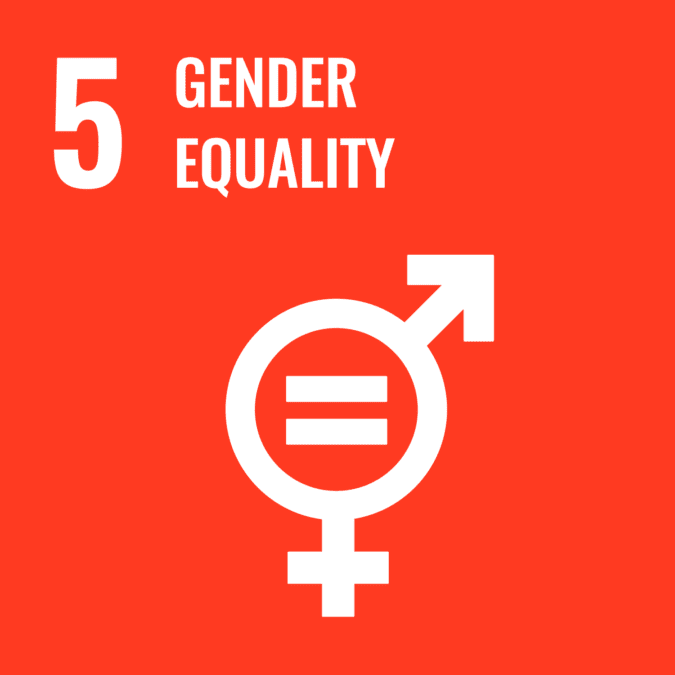
SDGs by 2030 – are we on track?
Women at work
Gender inequality in the home and at work are intertwined, impacting women across their entire lives.
Globally, women perform more care work (both unpaid and paid) than men. Women in Australia spend 30.2 hours a week doing unpaid work compared to 21.8 hours on the part of men. Men spend just over an hour more a day in the paid work force than women (8.13 hours compared to 7.12 hours on the part of women).

Care work is essential for the proper functioning of all societies. It is also undervalued in terms of its contribution to the economy. Women’s unfair share of unpaid care work is the major reason they experience unequal outcomes in the labour market.
SDG 5 aims to achieve gender equality and empower all women and girls equally everywhere in all aspects of life.
For women to participate fully in the paid workforce, caring work needs to be more equally shared between women and men, and families will require more support with childcare, elder care and domestic work.
A fundamental issue for SDG 5 is fixing the basis on which judgments are made about the value of work in the labour market.
The inherent qualities of care work need to be re-evaluated: how much do we value the empathy, the attention to detail, the ability to communicate with children, the elderly and people with a disability? The value of that work needs to be properly measured so that the people who do those jobs are paid appropriately and their skills are recognised and rewarded.
Is such a change unrealistic? No. For example the decision by the Fair Work Commission to increase the pay of aged care workers based partly on a re-evaluation of the often invisible care tasks they undertake is a positive step in the right direction.
I also invite you to consider the policy journey undertaken by the campaign for paid parental leave in Australia. Just as paid parental leave has shifted women’s economic position, the next frontier is shifting the share of carer’s leave more evenly between men and women. Until that gap is closed, full economic equality for women can’t happen.
My latest research focuses on the next gender equity frontier: reproductive rights at work.
Achieving equality for women in the workplace means taking women completely as they are, not disembodied from their femaleness. Target 5.2 calls for gender equality for women and girls in all spaces, public and private.
Women at work are not just a mind or a pair of hands. Bringing their whole selves to work requires workplace adjustments around specific female needs: rest times, leave to allow for their menstrual cycle, timeout to undergo IVF treatments. As women age, they may need different workplace environments or flexibility to accommodate menopause.
Will there be pushback? Sure. No significant change has ever been achieved without strident opposition. But let’s trust that the facts will win the argument (and let’s hope it’s by 2030). Because the research shows that women who are appreciated and accommodated at work are more productive. And employers who offer reproductive benefits – and there are a few corporates forging the way – know they are more likely to retain their female employees, thus reducing business turnover costs.
And while we are attending to SDG 5 let’s not ‘cheat’ by lowering our standards so that men’s pay and rights at work are reduced. Gender equality means lifting the bar for everyone.

Sustainable Development Goal (SDG) targets addressed:
Target 5.2 Eliminate all forms of violence against all women and girls in public and private spheres.
Target 5.4 Recognise and value unpaid care and domestic work through the provision of public services, infrastructure and social protection policies and the promotion of shared responsibility within the household and the family as nationally appropriate.
Target 5.5 Ensure women’s full and effective participation and equal opportunities at all levels of decision making and political economic and public life.
Target 5.6 Ensure universal access to sexual reproductive health and reproductive health and reproductive rights as agreed in accordance with the Programme of Action of the International Conference on Population and Development and the Beijing Platform for Action and the outcome documents of their review conferences.
Resources
Professor Marian Baird (PhD) is Chair of the Discipline of Work and Organisational Studies at the University of Sydney Business School and Professor of Gender and Employment Relations.
Share
We believe in open and honest access to knowledge.
We use a Creative Commons Attribution NoDerivatives licence for our articles and podcasts, so you can republish them for free, online or in print.



